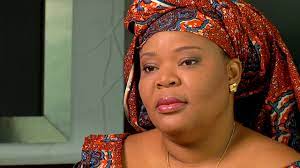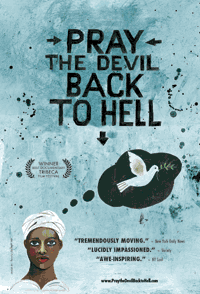
Around the world, forest dwelling women are organizing and mobilizing, and leading agrarian movements, land rights movement, and more. They are part of a global movement of rural women workers who are seizing the threats of multinational corporations and big money, turning them upside down and inside out, and shaking them to see what falls out. Often, what fall to the ground are the seeds of democracy.
In Ecuador, for decades, Wuaroni women have been organizing to stop the degradation and theft of their lands and lives. Ten years ago, they organized formally into AMWAE, Asociación de Mujeres Waorani de la Amazonía Ecuatoriana, to make sure they represented themselves in ongoing struggles and negotiations. In particular, they have been organizing against Texaco’s, then Chevron’s, incursions into Yasuní National Park. From the start, women of AMWAE argued that the loss of water, land, and home would hurt everyone and would target Wuaroni women. Recently, they have worked with the YASunidos campaign for a popular, and extended, consultation on the fate of the Yasuní area, foregrounding its residents. At the same time, they have affiliated with another new group, Colectivo Miradas Críticas del Territorio desde el Feminismo, who have just published their report, La vida en el centro y el crudo bajo tierra: El Yasuní en clave feminista. The report found that along with the contamination of the local ecology, one of the richest in biodiversity in the world, the assault on community increased inequality between men and women by rewarding and subsidizing patriarchal structures. At the same time, the poisoning of the waters has been a direct assault on women’s labor and bodies. In linking with feminist and women’s movements and with women in online advocacy movements, as well as others, rural indigenous women are opening spaces of common and mutual dialogue, action, and vision. And, little by little, they are winning.
From petroleum to the dirty business of palm oil, women are engaging in the struggle for autonomy, respect, and dignity. In Liberia, the Jogbahn Clan has been organizing to stop British palm oil company Equatorial Palm Oil PLC (EPO) from stealing their forest lands. While Liberian President Ellen Johnson Sirleaf has declared that the land under question is to be considered community land, and thus protected from external interference, reports claim EPO is still cutting down trees, surveying the land, and intimidating the Jogbahn Clan. In a recently released video, Deyeatee Kardor, the Clan’s Chairwoman, explains, “There’s no happy relationship with the company. From the time they arrived, there’s been nothing, just nothing for those who were evicted. All they have done is try to divide us. They identify important people, then offer them a little money to convince them to change others’ minds. As owners of the land we were intimidated because we stopped the company from taking our land, grabbing land. Now they must not expand their plantation onto our land. The women are united, not divided. When we say `no’, we mean `no.’ We stand together and say no! I am very happy my land is free, because when our land is free, we are all free.”
The women are united, not divided. When they say `no’, they mean `NO!’
(Photo Credit: IFADTV / You Tube)



